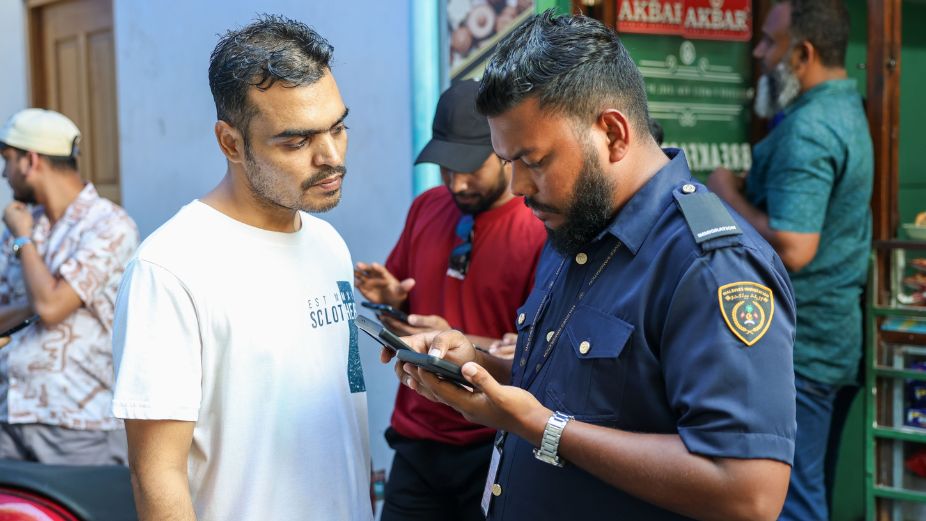
Maldives Immigration has clarified that not all foreigners apprehended during the ongoing national raid operations will face deportation, with those eligible given the opportunity to continue working legally in the country.
The nationwide operation, launched on 20 September on the directive of President Dr Mohamed Muizzu, aims to identify undocumented foreign nationals, dismantle illegal businesses, and hold accountable both foreign and local facilitators. It is being conducted jointly by Maldives Immigration and the Maldives Police Service, involving a large deployment of officers.
Chief Immigration Officer Ahmed Mujuthaba said the main focus is on undocumented workers and individuals engaged in unlawful activities. He noted that foreigners whose visas expired less than six months ago are issued notices rather than detained, while those without legal status are given the option to register under the government’s regularisation programme.
According to Immigration, 463 locations have been inspected so far, with 932 foreigners checked. A total of 81 undocumented individuals have been taken into custody, while information on 10 locations where foreigners were allegedly running illegal businesses has been shared with relevant authorities.
Meanwhile, Police Commissioner Ismail Naveen has stressed that authorities will not show leniency towards those who enter and work illegally in the Maldives. In a statement, Naveen said that while foreign workers operating in accordance with regulations are welcome, action will be taken against undocumented individuals. He added that human trafficking, which exploits vulnerable people, is a crime with severe social consequences, and pledged that the police remain committed to prosecuting traffickers and safeguarding public rights.
Both Immigration and the Police have reiterated that detained foreigners are being provided with a chance to regularise their status under the government’s programme, reflecting a dual approach of enforcement and legalisation.











